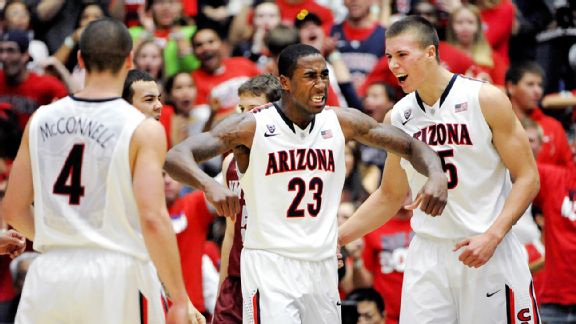Digging Into Next Year’s ACC Match-ups
Posted by Brad Jenkins on April 28th, 2014Late last week the ACC released its 18-game conference match-ups for each of the 15 men’s basketball teams in the 2014-15 and 2015-16 seasons. Here’s a link to the announcement, which includes ACC commissioner John Swofford’s comments on the changes. With Louisville replacing Maryland as a member next season, ACC leadership wisely chose to move away from a scheduling model that set games years in advance with little to no regard for attractive television match-ups. As the clearest example, the ratings success of both Duke-Syracuse games last season ensured that those programs will play twice again in 2014-15. Good move! The league will also reward a newcomer (Louisville) with a first year bonus of home games against all three tradition-rich Triangle programs. Duke, North Carolina and N.C. State each visited Syracuse and Notre Dame in their first seasons as new members, while Pittsburgh hosted Duke and N.C. State. In another smart move, the league will match Louisville and North Carolina twice in 2014-15. In 2015-16, the four highest profile programs will swap doubles partners, as Duke will face Louisville twice and North Carolina will meet Syracuse two times. For a league vying to become a dominant basketball force in coming seasons, these are all smart long-term moves.
Let’s now take a look at which schools may have the easiest or toughest conference schedules next season. Before we can compare them in any meaningful way, we must first rank the teams in groups based on how good we think they will be next year. Of course it’s all guesswork at this point, but without doing too much detailed analysis, here are the four different groupings of teams (“A” being the best) as we see them right now.
To compare schedules we will just look at the teams each school plays twice, as that really represents the main difference in these schedules. For each team in Group A, we will assign four toughness-points, Group B teams are worth three, and so on. We’ll do our comparisons by group to see which teams have it better or worse compared to teams of the same relative strength. Each group table lists the teams in order of easiest schedule, showing the teams they play twice and the toughness-points that total in the far right column.












































